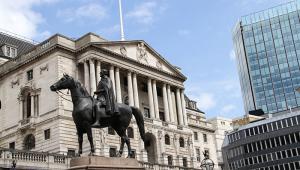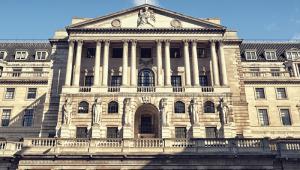By Mark Smulian | 7 August 2013
The Bank of England has issued guidance on its future conduct of monetary policy in a bid to reduce uncertainty in the financial markets.
New governor Mark Carney said the central bank’s Monetary Policy Committee intended to leave interest rates at their current 0.5% level at least until the Labour Force Survey headline measure of the unemployment rate has fallen to 7% from the current 7.8%.
Carney said this did not mean that interest rates would be increased once unemployment reached that level, but that they would be reviewed if and when it was reached.
He said the MPC would undertake further asset purchases – also known as quantitative easing – while the unemployment rate remains above 7% if it judged that additional monetary stimulus was needed.
It did not plan at least until that point to reduce its stock of asset purchases financed by the issuance of central bank reserves and would reinvest cash from maturing gilts held in its asset purchase facility.
Interest rates could change before unemployment reaches 7% though, were the MPC to judge that inflation would exceed 2.5% or if financial stability were at risk.
Inflation at present stands at 2.9% but is expected to fall towards 2% over the next three years, the bank said.
The MPC expected annual growth to be only 2.4% in two years’ time – a rate still a little below its historical average.
Carney said a recovery was under way but it ‘remains weak by historical standards, and there is still a significant margin of spare capacity in the economy’.
Clarity on the future of monetary policy would avoid ‘unwarranted tightening in interest rate expectations as the recovery gathers strength’.
Forward guidance reduces uncertainty about the future path of monetary policy Carney said, and should help to avoid the risk that market interest rates rise prematurely as the recovery gains traction. It should also give greater clarity on the trade-off between returning inflation to its 2% target and the speed with which growth and employment recover.
Danny Cox, head of financial planning at Hargreaves Lansdown, said: ‘Those most negatively affected by Mark Carney’s proactive stance will be savers. ‘Interest rates on cash deposits aren’t going to rise anytime soon and certainly not significantly for three years it seems.’
Myles Baxter, account manager at Caxton FM, said the bank had followed America’s Federal Reserve in linking the outlook for interest rates to unemployment and inflation.
He said: ‘Although the governor acknowledged the UK recovery is under way, he stressed the fact the recovery is still weak by historical standards.’





















